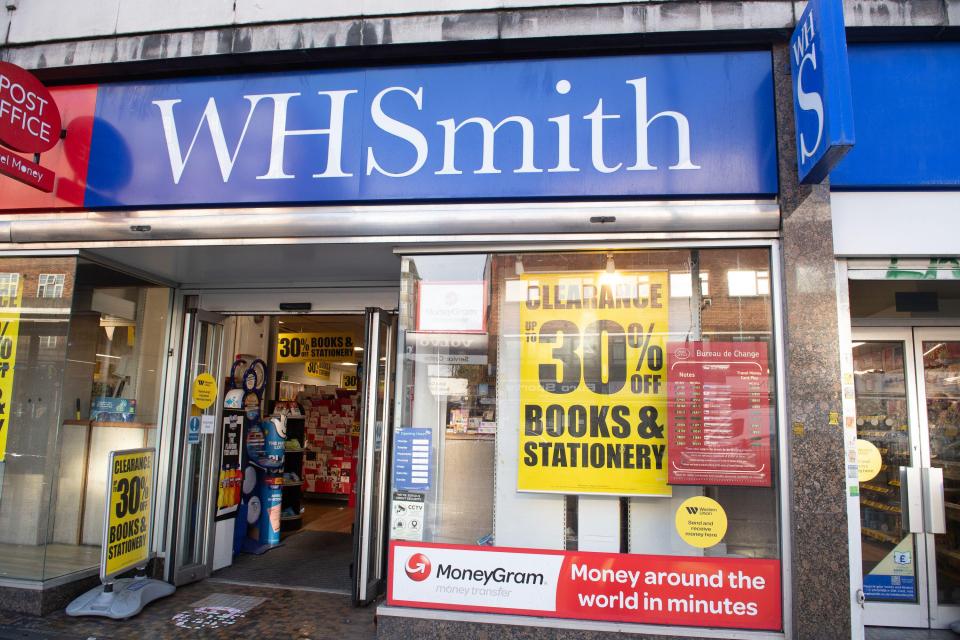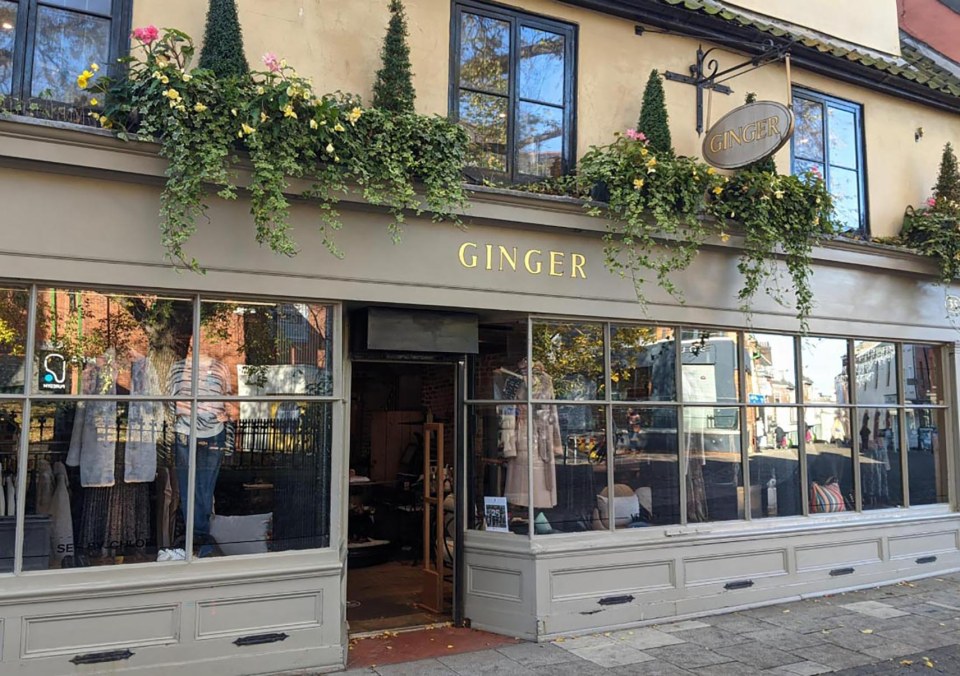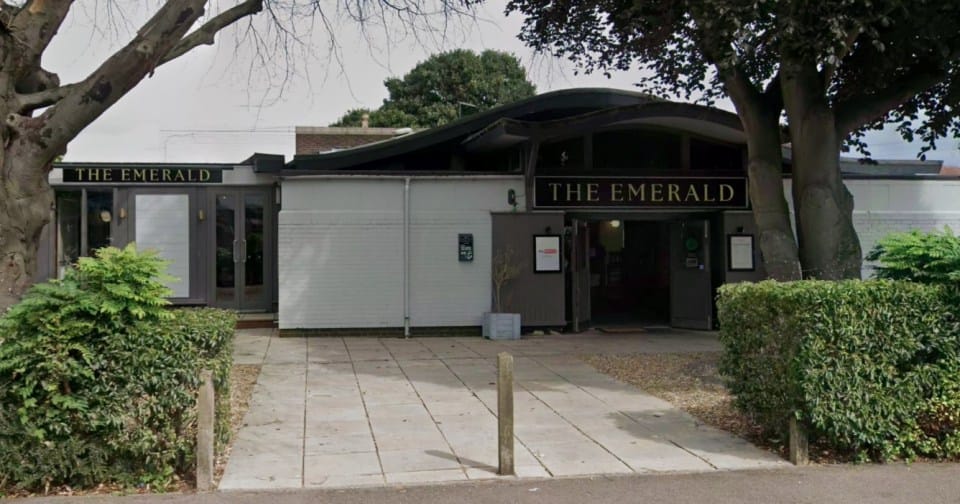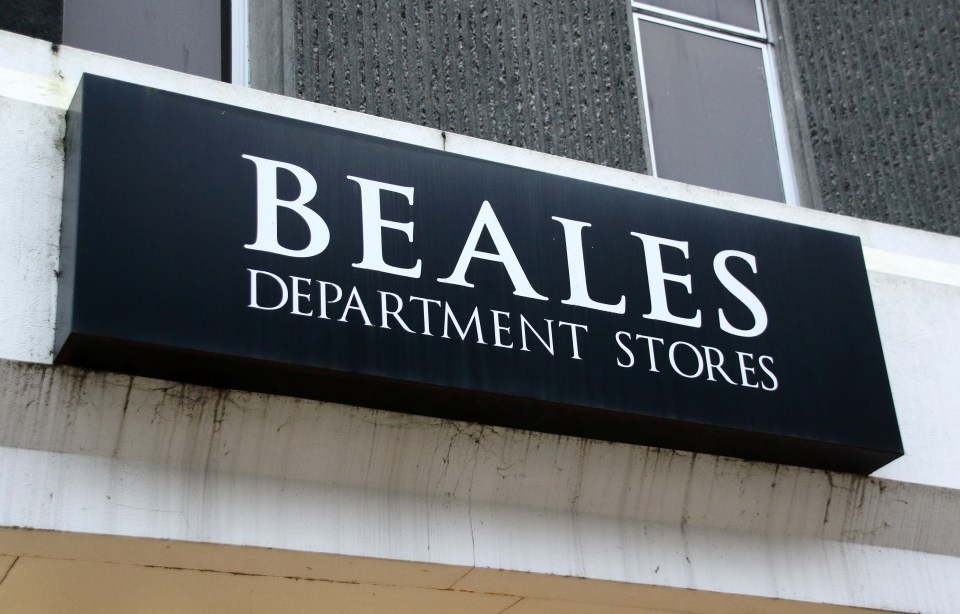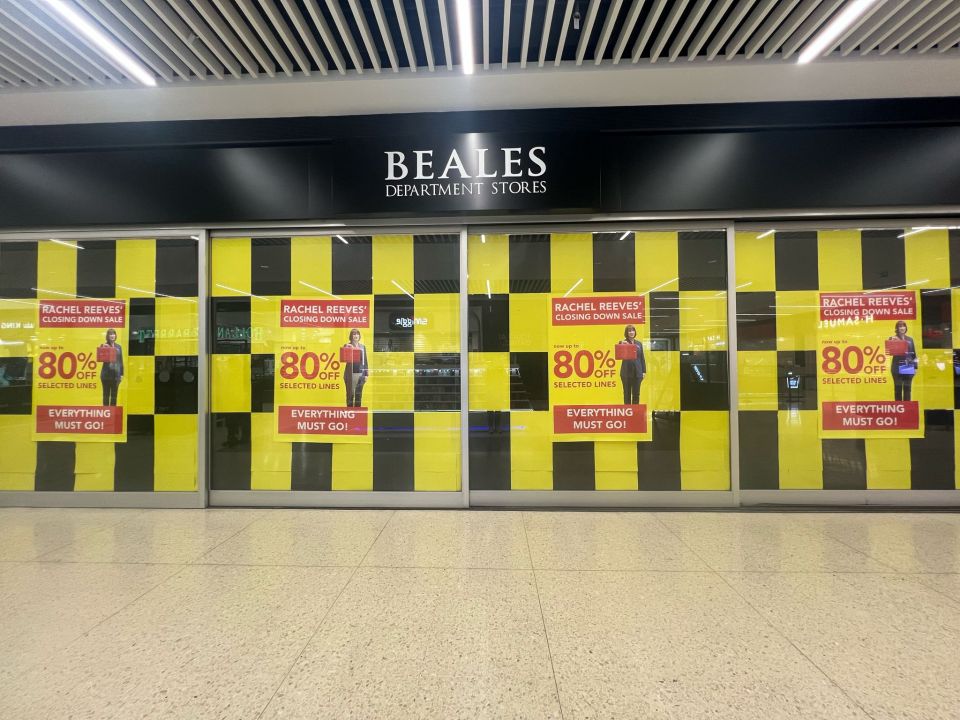WHSmith store to close within hours ahead of chain disappearing off UK high street for good
ANOTHER WHSmith store will shut its doors for the final time this weekend as the retailer continues its slow retreat from Britain’s high streets.
Shoppers in Stockton, County Durham, will say goodbye to their local branch on Saturday, May 17, as it becomes the latest casualty in the chain’s ongoing wave of closures.
The move follows a string of recent shutdowns across the country, with WHSmith axing high street locations after being snapped up by Hobbycraft owner Modella Capital earlier this year in a £76million deal.
The dramatic shake-up means the WHSmith name will vanish from town centres altogether, although its stores in airports, train stations and hospitals will stay open.
Locals in Stockton have been left gutted, with many now forced to travel to travel hubs or shop online for books, stationery, and gifts.
The high street giant has a number of stores in recent months – and more are set to follow.
Branches in Halstead and Woolwich shut on April 12, while Halesowen and Diss followed on April 19.
Just a week later, stores in Newport and Haverhill also pulled down the shutters.
And there’s no sign of the cuts slowing.
Two more sites are due to close by the end of July:
- West Mall, Frenchgate Centre, Doncaster – May 31
- Bedford, Bedfordshire – July 5
Many of the shutting stores are currently holding closing-down sales, with shoppers able to grab big bargains before they go.
Already gone
At least ten WHSmith branches have already vanished from high streets this year, including:
- Bournemouth (Old Christchurch Road), Dorset
- Luton, Bedfordshire
- March, Cambridgeshire
- Basingstoke, Hampshire
- Long Eaton
- Newtown, Powys
- Winton (Bournemouth), Dorset
- Rhyl, Denbighshire
- Bolton, Greater Manchester
- Accrington, Lancashire
The retailer, which first opened in 1792, has faced growing pressure from rising costs, online rivals and changing shopper habits.
The end of WHSmith on the high street
The closures mark the beginning of the end of a 233-year stint on the high street for WHSmith.
Earlier this year, it put its entire high street estate up for sale as it focuses instead on its more profitable travel arm.
As previously mentioned, its remaining 480 high street stores were snapped up by Modella Capital last month, and the move saved the jobs of roughly 5,000 employees.
However, the famous WHSmith name is set to be lost to the high street as the shops will be gradually rebranded to TGJones.
The brand opened its first shop in 1792 in Little Grosvenor Street, London, later becoming the UK’s main newspaper distributor.
High street struggles
WHSmith’s departure from the high street comes just a few years after rival Wilko collapsed, with the brand partially rescued by The Range.
Retailers that had once seemed resilient now appear to be buckling under recent pressures.
They have had to deal with rising inflation and costs, a move to online shopping, and customers having less money to spend amid the cost of living crisis.
RETAIL PAIN IN 2025
The British Retail Consortium has predicted that the Treasury’s hike to employer NICs will cost the retail sector £2.3billion.
Research by the British Chambers of Commerce shows that more than half of companies plan to raise prices by early April.
A survey of more than 4,800 firms found that 55% expect prices to increase in the next three months, up from 39% in a similar poll conducted in the latter half of 2024.
Three-quarters of companies cited the cost of employing people as their primary financial pressure.
The Centre for Retail Research (CRR) has also warned that around 17,350 retail sites are expected to shut down this year.
It comes on the back of a tough 2024 when 13,000 shops closed their doors for good, already a 28% increase on the previous year.
Professor Joshua Bamfield, director of the CRR said: “The results for 2024 show that although the outcomes for store closures overall were not as poor as in either 2020 or 2022, they are still disconcerting, with worse set to come in 2025.”
Professor Bamfield has also warned of a bleak outlook for 2025, predicting that as many as 202,000 jobs could be lost in the sector.
“By increasing both the costs of running stores and the costs on each consumer’s household it is highly likely that we will see retail job losses eclipse the height of the pandemic in 2020.”

